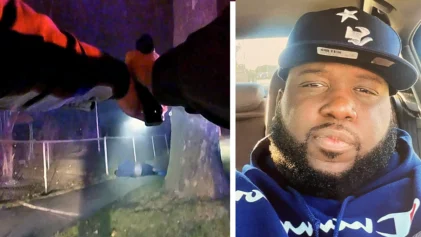A medical equipment company is set to pay $50,000 to a former employee who alleged she was terminated for wearing her natural hair, according to a lawsuit obtained by Atlanta Black Star.
The discrimination lawsuit was filed against American Screening, LLC, by the federal government in the US District Court For The Eastern District of Louisiana on behalf of the Black employee, Imani Jackson. When she initially interviewed for a sales job at the company in August 2018, she wore a long straight wig that the owner deemed “beautiful hair.”
Per the lawsuit, the wig likely came from an individual of European or Native American descent. However, things changed when Stewart started wearing her 4-A natural, curly hair in a bun in mid-September 2018. Her hair texture is more commonly associated with Black women.

“Other employees also often wore their own hair in buns or in ponytails, but unlike
Ms. Jackson, those employees did not have tightly curled hair,” the lawsuit noted.
The owner instructed human resources to speak to Jackson about “about her hair and looking more professional,” according to the court filing, adding that it “looks like she rolls out of bed.” The owner continued to make comments during her time at the company.
On October 11, 2018, the owner told Jackson that her hair was “unacceptable” and asked her to wear the wig again. The HR and payroll managers informed her that the owner was “acting unlawfully” and encouraged her to find another job.
According to the lawsuit, Jackson was fired days later, and the company then hired a replacement, who was white.
Jackson filed a charge of racial discrimination with the Equal Employment Opportunity Commission accusing American Screening of violating Title VII of the Civil Rights Act of 1964, which notably provides protection for employees as well as job applicants from being discriminated against based on race, sex, age, and other factors.
According to the lawsuit, the EEOC sent a letter to the company offering “informal methods of conciliation,” however, the American Screening and the federal agency were not able to come to terms.
“Just as an employer may not ask an employee to change or conceal their skin color, an employer may not ask an employee to change their natural hair texture,” EEOC Chair Charlotte Burrows said in a statement. “Unfortunately, this form of discrimination continues to limit employment opportunities for Black workers, even today.”
Historically, Black women’s hair has been at the center of workplace politics and beyond. Legislation like the CROWN Act, or Creating a Respectful and Open World for Natural Hair is pushing to end race-based hair discrimination based on styles including locs, braids and twists.
A 2023 study revealed that Black hair is 2.5 times more likely to be considered unprofessional. Recently, former NFL player Andrew Pinnock said he is considering legal action, claiming that his daughter was sent home from her job due to her hair, braids with red streaks.
According to court documents filed last week, April 4, the EEOC’s lawsuit was resolved via consent decree, which will be in effect for three years. The decree came after American Screening filed for bankruptcy, and the settlement amount was greenlit earlier this year, per the federal agency.
The consent decree demands that American Screening takes the necessary steps to ensure that it doesn’t “discriminate based on race in hiring, firing, or in the terms and conditions of employment,” court documents say. It also requires the company to hire a liaison to uphold Title VII. In addition, the liaison and employees are expected to undergo two hours of training on anti-discrimination laws and regulations.
“Professionalism standards rooted in prejudices associated with racial characteristics are unlawful,” Elizabeth Own, the agency’s senior trial attorney, added in the press release. “No one should be terminated or treated differently because of hair texture associated with their race, under the guise of what is supposedly professional or not.”


